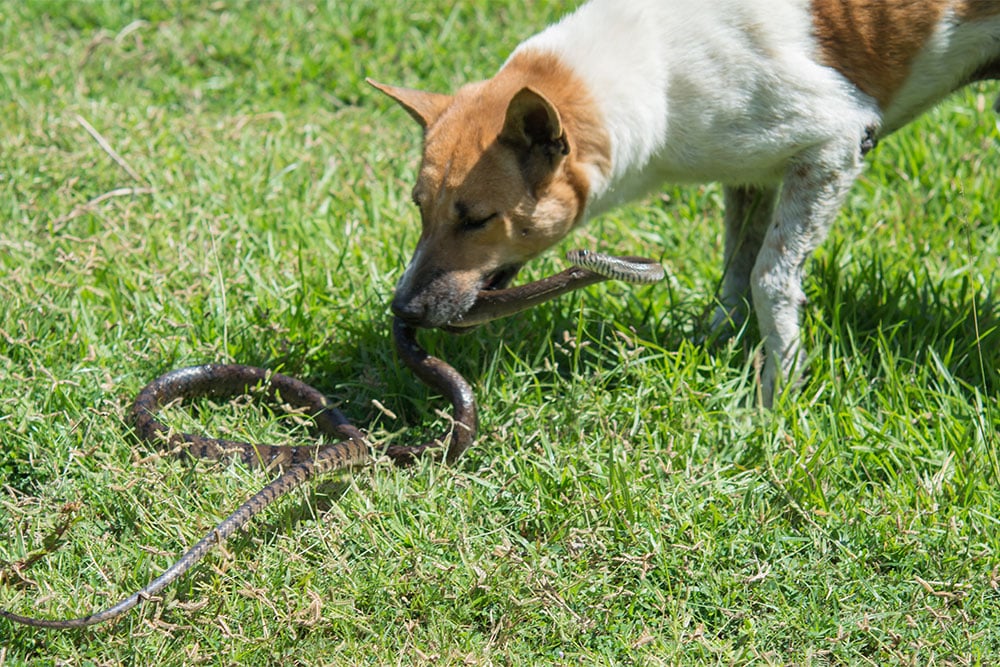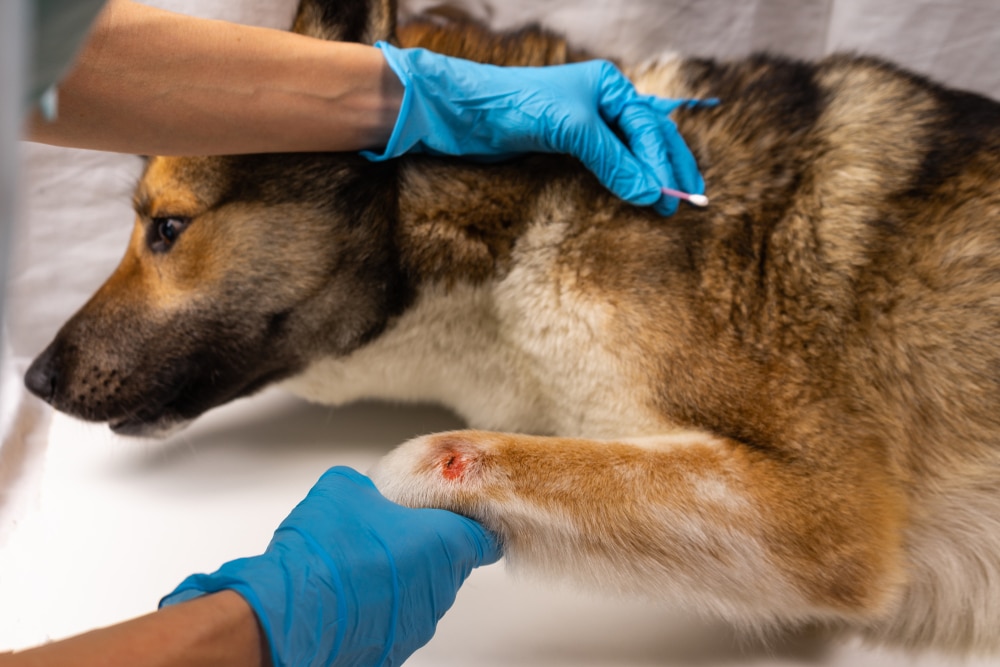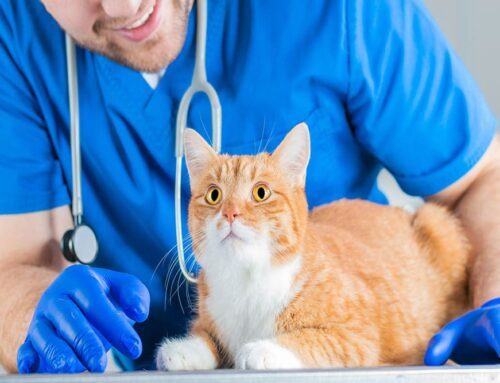Snake Bite Emergency! What to Do if a Snake Bites Your Pet?
You’re enjoying a sunny Southern California day when your dog suddenly yelps and pulls away. On closer inspection, you spot two small puncture marks on their leg. Could it be a snake bite?
At Fountain Valley Emergency Pet Hospital, we know how frightening this moment can be. But fast, informed action can make all the difference. Here’s what every local pet owner should know about snake bites—how to recognize them, what to do, and how to protect your pet moving forward.
Understanding Snake Bites in Pets
What Is a Snake Bite?
A snake bite is a puncture wound caused by fangs—sometimes injecting venom. While not all snake bites are venomous, venomous bites are true emergencies and require immediate care.
Why and Where Snake Bites Happen
Pets can stumble on snakes in brush, trails, backyards—even sidewalks. Southern California’s warm climate makes snake activity more common during warmer months, and curious dogs are particularly at risk.
Signs of a Snake Bite: What to Watch For
Immediate Symptoms
- Puncture wounds (may or may not bleed)
- Yelping, limping, or sudden pain
- Rapid swelling at or near the bite site
- Restlessness or anxiety
Systemic Symptoms
If venom was injected, you may also notice:
- Weakness or collapse
- Muscle tremors or twitching
- Labored breathing
- Vomiting or drooling
- Abnormal heartbeat
What If You Don’t Seek Immediate Care?
Delaying treatment—even by a few hours—can be dangerous. Without veterinary help, venom may cause:
- Severe tissue damage, sometimes requiring amputation
- Organ failure, especially kidneys or liver
- Infection and necrosis
- Fatal complications, including shock or respiratory failure
Even if the bite looks mild, assume venom was injected and seek help immediately.
What to Do in a Snake Bite Emergency
Take These Steps Immediately
- Do NOT try to catch or kill the snake
- Keep your pet calm and still to slow venom spread
- Gently clean the wound with water—no ointments, no alcohol
- Avoid ice, suction, or tourniquets
- Call us or your nearest emergency vet while transporting your pet
More tips: Treating Snake Bites – ASPCApro
Veterinary Care: What to Expect
At the Hospital
At Fountain Valley Emergency Pet Hospital, our team will:
- Perform a full physical exam
- Assess vital signs and envenomation symptoms
- Begin IV fluids, oxygen, and pain control as needed
Diagnostics and Treatment
- Bloodwork and urinalysis to monitor organ function
- Antivenom if indicated
- Supportive care (fluids, antibiotics, anti-nausea)
- Ongoing monitoring for 24–72 hours depending on severity
More on outcomes: Rattlesnake Envenomation – Embrace
Life After a Bite: Recovery and Emotional Impact
Snake bites don’t always end with the ER visit. Some pets experience:
- Chronic pain or limited mobility
- Behavioral changes or anxiety
- Long-term wound care or rehab
And for owners? This can be emotionally overwhelming. We’re here for you and your pet every step of the way—with both clinical care and compassionate support.
Preventing Snake Bites: What You Can Do
At Home
- Keep grass short and remove yard debris
- Seal crawl spaces and under-porch access
- Use pet-safe snake repellents
Outdoors
- Keep dogs leashed on hikes or trails
- Avoid dense brush and rocky outcroppings
- Consider snake avoidance training
- Ask us about the rattlesnake vaccine

FAQs: Quick Answers
What if I didn’t see the snake?
If symptoms appear suddenly, assume a bite and seek help.
Can a bite happen in my backyard?
Yes—even well-maintained yards can attract snakes.
Is the rattlesnake vaccine available for cats?
Currently, it’s only approved for dogs.
Should I try to suck out the venom?
No. This is outdated and dangerous.
We’re Here to Help
At Fountain Valley Emergency Pet Hospital, we’re equipped to handle snake bites quickly and compassionately—day or night. If your pet is bitten, please contact us immediately, or come straight in.
You don’t have to face this alone. We’re here to help!






Leave A Comment